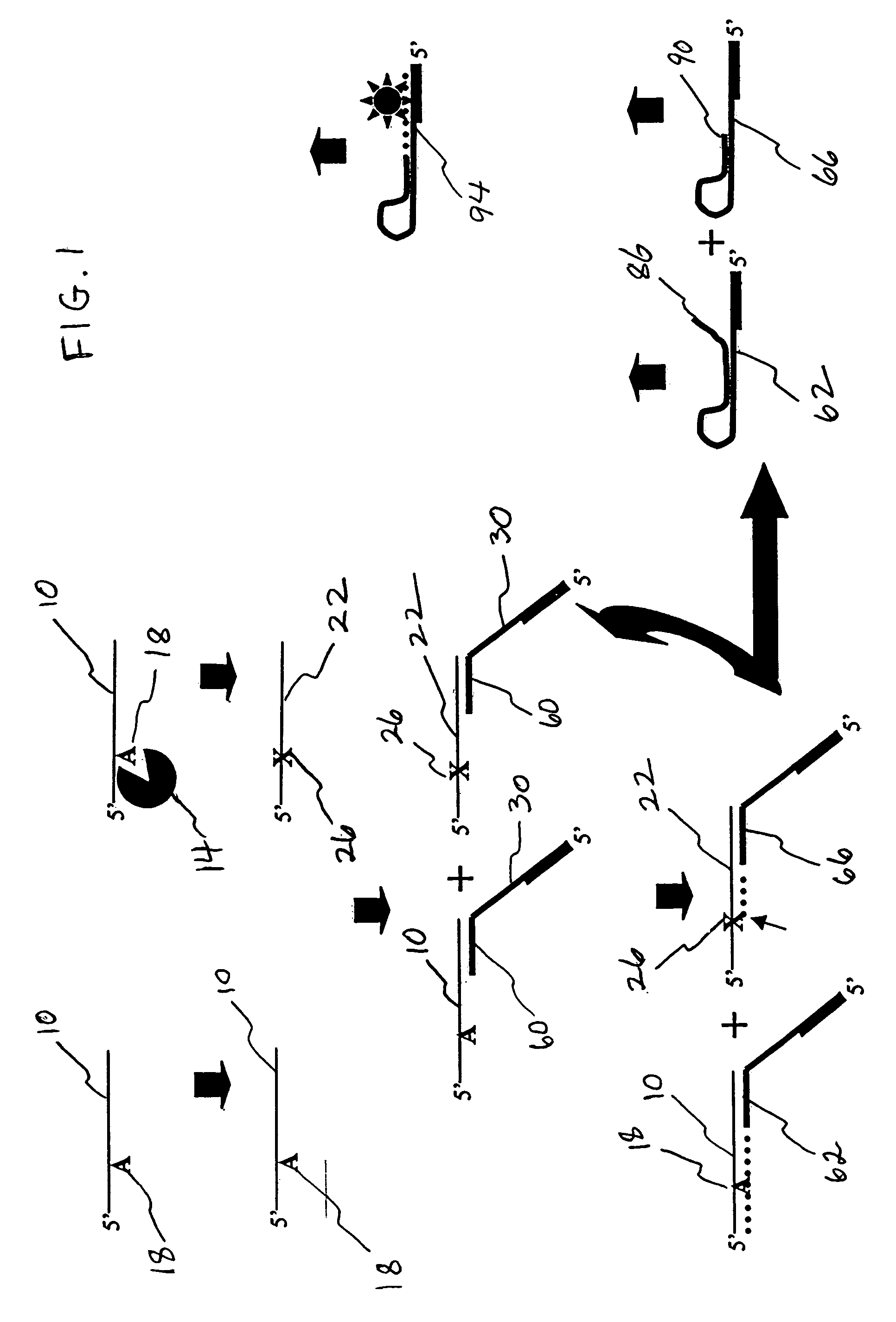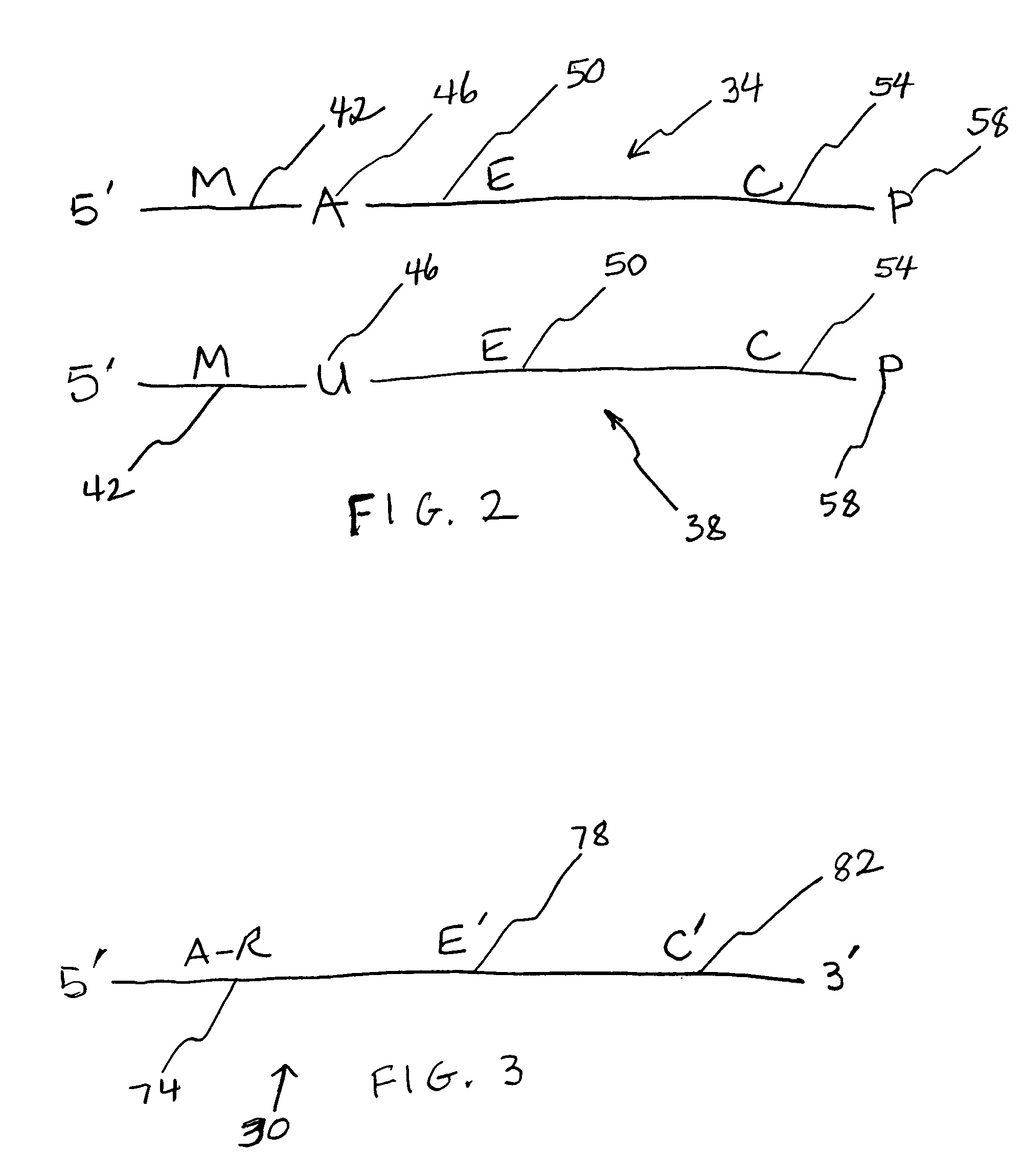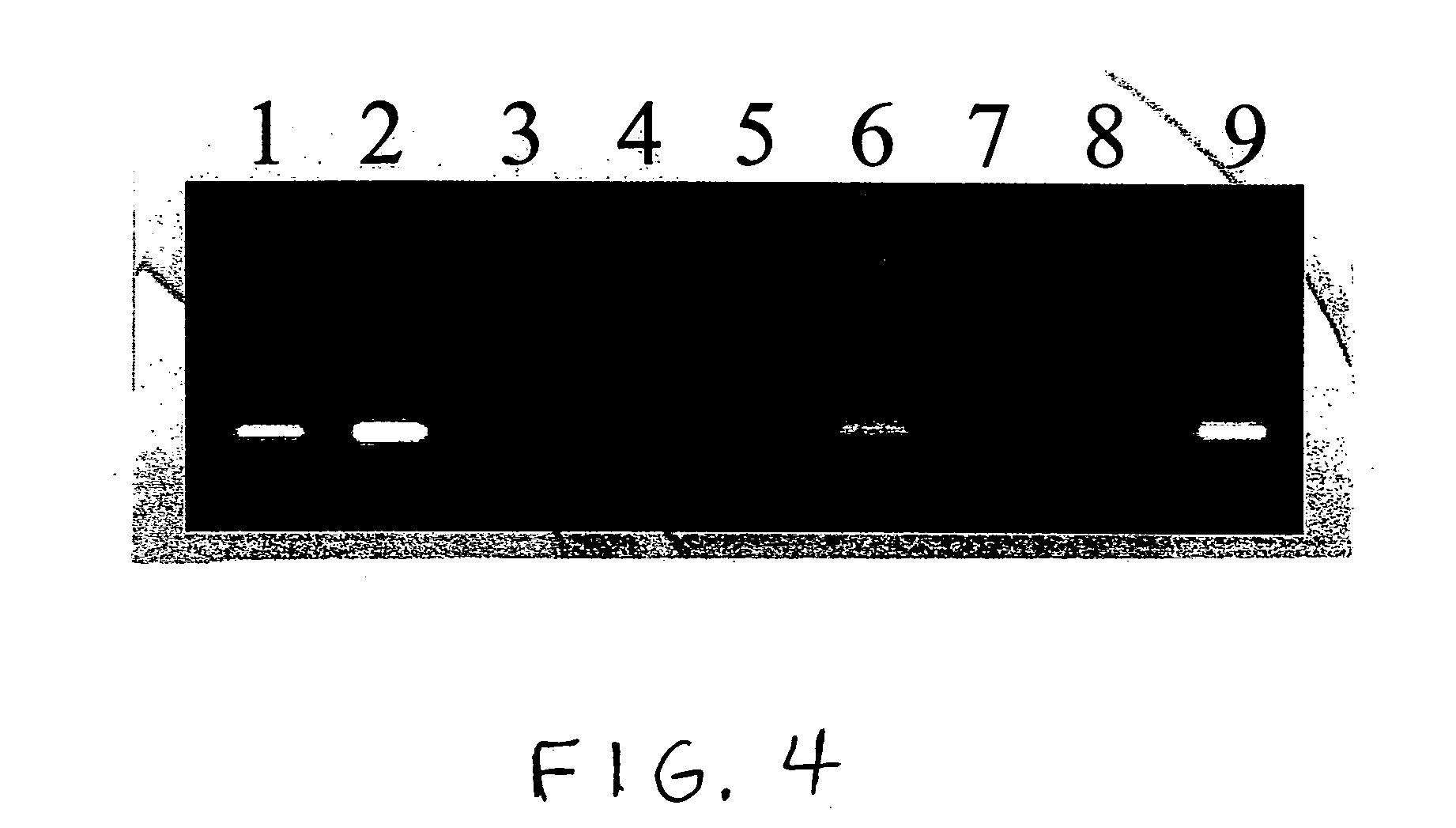Activity-based assay for ricin-like toxins
a technology of ricin-like toxins and activity-based assays, which is applied in the field of sensitive detection of nglycosylase toxins, can solve the problems of false response, limited sensitivity, and unfavorable signal amplification, and achieve low background signal, high sensitive, and easy to adapt to real-time analysis
- Summary
- Abstract
- Description
- Claims
- Application Information
AI Technical Summary
Benefits of technology
Problems solved by technology
Method used
Image
Examples
example 1
[0077]ODNs were obtained from Integrated DNA Technologies (IDT; Coralville, Iowa). To restrict the site of action of the N-glycosylases to one site on each ODN substrate molecule, substrates contained a single adenine (A; SEQ ID NO:1) or uracil (U; SEQ ID NO:2-ttttgcutgcttcggtgccggttctccctgtcgtgtcgttggt) base amid ODN segments having specific functions in the Taq-catalyzed reactions. Positive control ODNs simulated depurinated substrates (ccggcttgcFtgcttcggtgccggttctccctgtcgtgtcgttggt-P, wherein F is a tetrahydrofuran-based spacer, and P is a phosphate group; SEQ ID NO:3) or substrates hydrolyzed following depurination (SEQ ID NO:4). Abasic sites hydrolyze abiotically at elevated temperature and pH. M. E. Fárez-Vidal et al., Characterization of uracil-DNA glycosylase activity from Trypanosoma cruzi and its stimulation by AP endonuclease, 29 Nucleic Acids Res. 1549–1555 (2001). A primer (SEQ ID NO:5) was designed so that its 3′ segment (SEQ ID NO:6) would anneal to the complementary ...
PUM
| Property | Measurement | Unit |
|---|---|---|
| volume | aaaaa | aaaaa |
| pH | aaaaa | aaaaa |
| temperature | aaaaa | aaaaa |
Abstract
Description
Claims
Application Information
 Login to View More
Login to View More - R&D
- Intellectual Property
- Life Sciences
- Materials
- Tech Scout
- Unparalleled Data Quality
- Higher Quality Content
- 60% Fewer Hallucinations
Browse by: Latest US Patents, China's latest patents, Technical Efficacy Thesaurus, Application Domain, Technology Topic, Popular Technical Reports.
© 2025 PatSnap. All rights reserved.Legal|Privacy policy|Modern Slavery Act Transparency Statement|Sitemap|About US| Contact US: help@patsnap.com



